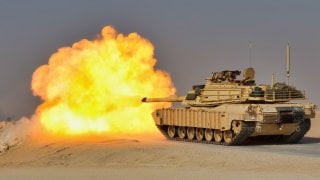This Is Serious: Why North Korea Is Fighting and Dying in Ukraine For Russia
A more combat-ready army could give Pyongyang more options in seeking to disrupt international order.
Big news: North Korea is not a black hole. It is a country that is now sending its military to the other side of Eurasia.
Historically, Pyongyang’s problem has been its military’s lack of combat experience against a determined enemy. The Democratic People’s Republic of Korea (DPRK) has not fought in a significant conflict since the Korean War armistice in 1953. Yet, Ukraine’s incursion into Russia’s Kursk region provided a unique chance to master the art of war.
In October, after brief training in the Far East, up to 12,000 North Korean troops out of the 1.3 million-strong army were deployed to the battlefields in Russia.
DPRK provides its military assistance under the Comprehensive Strategic Partnership Agreement, which came into effect last week. The treaty commits the parties to mutual defense against external attack. This provision legitimizes the involvement of North Korean troops as long as they fight on Russia’s internationally recognized territory.
North Korea’s three brigades are conducting combat operations in Kursk and defending the neighboring Belgorod region, allowing Moscow to free up troops for an offensive in Ukraine. The North Korean military will likely learn to operate drone technology and use Russian weapons.
Putin, as usual, surprised the West. When the agreement was signed, experts pondered the possible transfer of nuclear and satellite technology from Russia in exchange for arms and ammunition from the DPRK. Instead, the Kremlin opted for manpower and offered a “baptism by fire” opportunity at a modest price of $2,000 per trooper.
The troops might prove ineffective, at least at the beginning, and will struggle with a language barrier and unfamiliar weapons. However, they are no strangers to cold climates and are tough and disciplined. With time, they will attain much-needed combat experience. This experience will help the DPRK gain confidence and rebalance the power equation vis-à-vis South Korea, which enjoys U.S. security protection and against whom the DPRK has always felt like an underdog.
Although armed with nuclear weapons, Pyongyang did not know how to translate them into tactical gains, whereas a combat-ready army could give the leadership more options. Engagement with the DPRK is part of Russia’s long-term strategy of pivoting to the East. In Moscow’s eyes, the country with which Russia shares a seventeen-kilometer land border is not a pariah.
Pyongyang was one of the first foreign trips Putin made upon becoming the Russian president in 2000. Western sanctions boosted relations in 2014: Moscow wrote off 90 percent of the DPRK’s Soviet-era debt and sought to regain lost ground in economic cooperation. Connectivity became a priority.
In 2017, a Russian telecom provider supplied North Korea with internet access. Preparations even started for a cross-border highway bridge, with the ultimate aim of connecting Russia with North Korea by land.
The COVID-19 pandemic and the war in Ukraine disrupted infrastructure plans but cemented political alignment. DPRK supported Russia in the UN votes on Ukraine, while Moscow has shielded its partner diplomatically. In March 2024, Russia used its leverage at the UN’s Security Council by vetoing an extension of the “panel of experts” mandate to monitor the observance of the UN sanctions on nuclear and ballistic missiles. The move allowed Russia to tactically undermine the sanctions regime without formally breaking out of them.
By entering into a security partnership with Russia most directly, North Korea demonstrated that it is more than a violator of the non-proliferation regime. It has assets to offer and can use a global geopolitical fallout to its advantage. The events left Ukraine, which lost battlefield initiative, and its Western backers wondering what other tricks Putin might pull out of a hat in pursuit of his ambitions. Desperate times call for desperate measures, such as North Koreans disguised as Siberian Russians in the ruins of Kursk.
About the Author:
Anna Matveeva is a Senior Visiting Research Fellow at Russia Institute at King’s College London and the author of Through Times of Trouble (Lexington Books 2018).
Image: Creative Commons.

